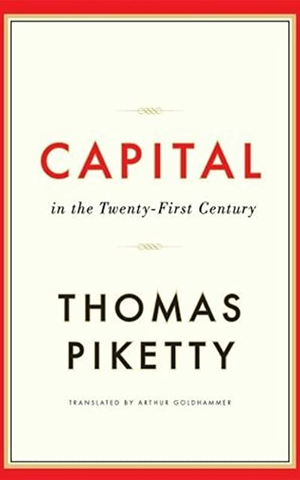
Capital in the Twenty-First Century
- Book
- Aug 30, 2013
- #Economics #Politics
What are the grand dynamics that drive the accumulation and distribution of capital? Questions about the long-term evolution of inequality, the concentration of wealth, and the pros...
Show More
Number of Pages: 685
ISBN: 067443000X
ISBN-13: 9780674430006
Mentions
See All
Bill Gates @BillGates
·
Dec 8, 2014
- Curated in The best books I read in 2014
Capital sparked a fantastic global discussion this year about inequality. Piketty kindly spent an hour discussing his work with me before I finished my review. As I told him, although I have concerns about some of his secondary points and policy prescriptions, I agree with his most important conclusions: inequality is a growing problem and that governments should play a role in reducing it. I admire his work and hope it draws in more smart people to study the causes of, and cures for, inequality.
mztacat @mztacat
·
Nov 19, 2022
- Answered to What are some of the best new books to read?
- From Twitter
check this out
Sevcan Yeşiltaş @SevcanYeilta
·
Sep 5, 2022
- Curated in A List of Book Recommendations